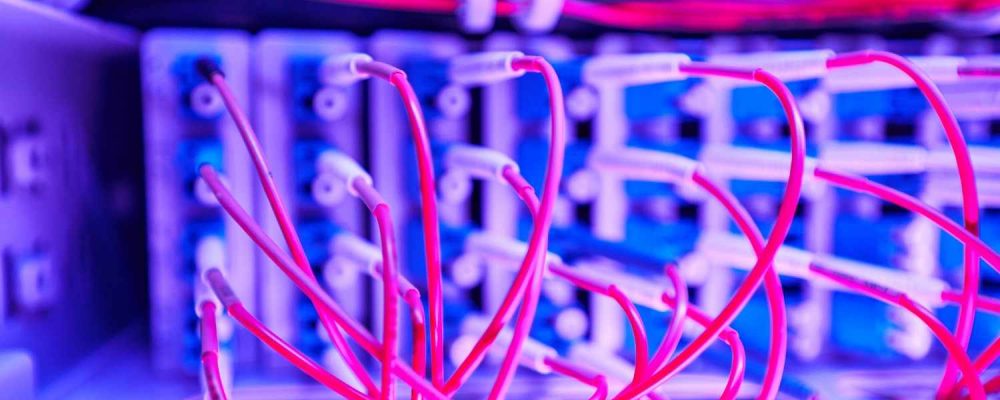Summary : Fiber optic cables outperform copper in speed, bandwidth, distance, reliability, and size. They transmit data nearly at the speed of light, offer higher bandwidth, and can cover long distances without signal loss. Unlike copper, they pose no fire risk and are thinner, lighter, and stronger, making them ideal for modern networking needs. Their durability, resistance to interference, and future-proof capabilities make fiber optics the preferred choice for businesses seeking efficient and secure data transmission

Remember the age of dial-up internet and how painfully slow it used to be?
Thank goodness for technology!
Internet providers began using fiber as a medium by which to transmit internet signal about a decade ago. Faster internet speeds followed. Copper cables are another option and while they are less expensive, optical fiber is faster, more reliable and possesses better bandwidth potential.
Speed kills.
If you decide that fiber optics cables are the best option, don’t hesitate to reach out to Network Drops, a leading network infrastructure service in Mercer County, NJ, and surrounding areas, for a free network design. Here are five reasons why fiber optics is better than copper.
Fiber optics cables are only about 31 percent slower than the speed of light and that speed is significantly more noticeable than copper ones. For example, a download that takes 22 minutes over a copper wire internet connection takes as little as eight seconds to download over fiber.
Fiber optics supplies a lot more bandwidth than copper and has standardized performance at about 10 Gbps or more. Fiber has the ability to carry more information with pristine efficiency than copper.
There’s minimal signal loss with fiber optics cable and they can move at greater distances. Certain fiber connections can be transmitted as far as 25 miles. The distance of transmission in fiber optics is 40,000 meters at 1,000 Mbps, while copper is just 100 meters at 1,000 Mbps.
Copper wires carry an electric current, so the ones that are old and worn out can present a fire hazard. Since there’s no electric current traveling through fiber optics cables, there’s no risk or danger. Light can’t catch on fire.
Fiber optics cables are a lot thinner, lighter and stronger than copper, possessing eight times the pulling tension of copper wires. Their strength members and stiffeners make them more sturdy and difficult to damage or kink.
Interested parties can learn more about Network Drops, a leading network infrastructure service provider serving in Mercer County, NJ, by visiting their website. Please call 609-601-5161 to schedule an appointment.
"*" indicates required fields
Scott Fcasni is the driving force behind Shock I.T. Support’s commercial datacomm cabling division, delivering expert solutions that power reliable, high-performance network infrastructures. With extensive experience in structured cabling and a commitment to precision, Scott ensures that every project—whether for small businesses or large enterprises—meets the highest standards of quality and scalability.